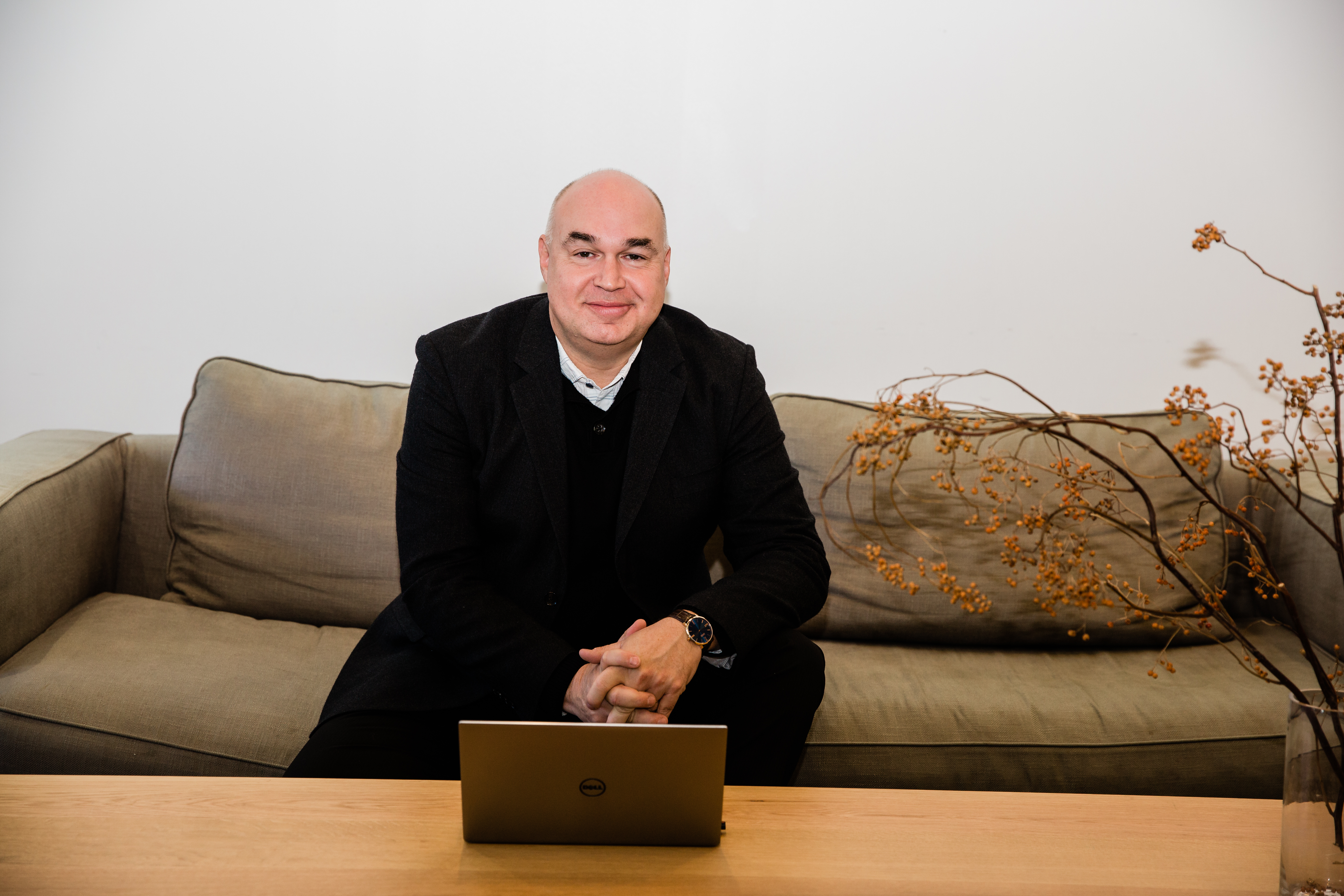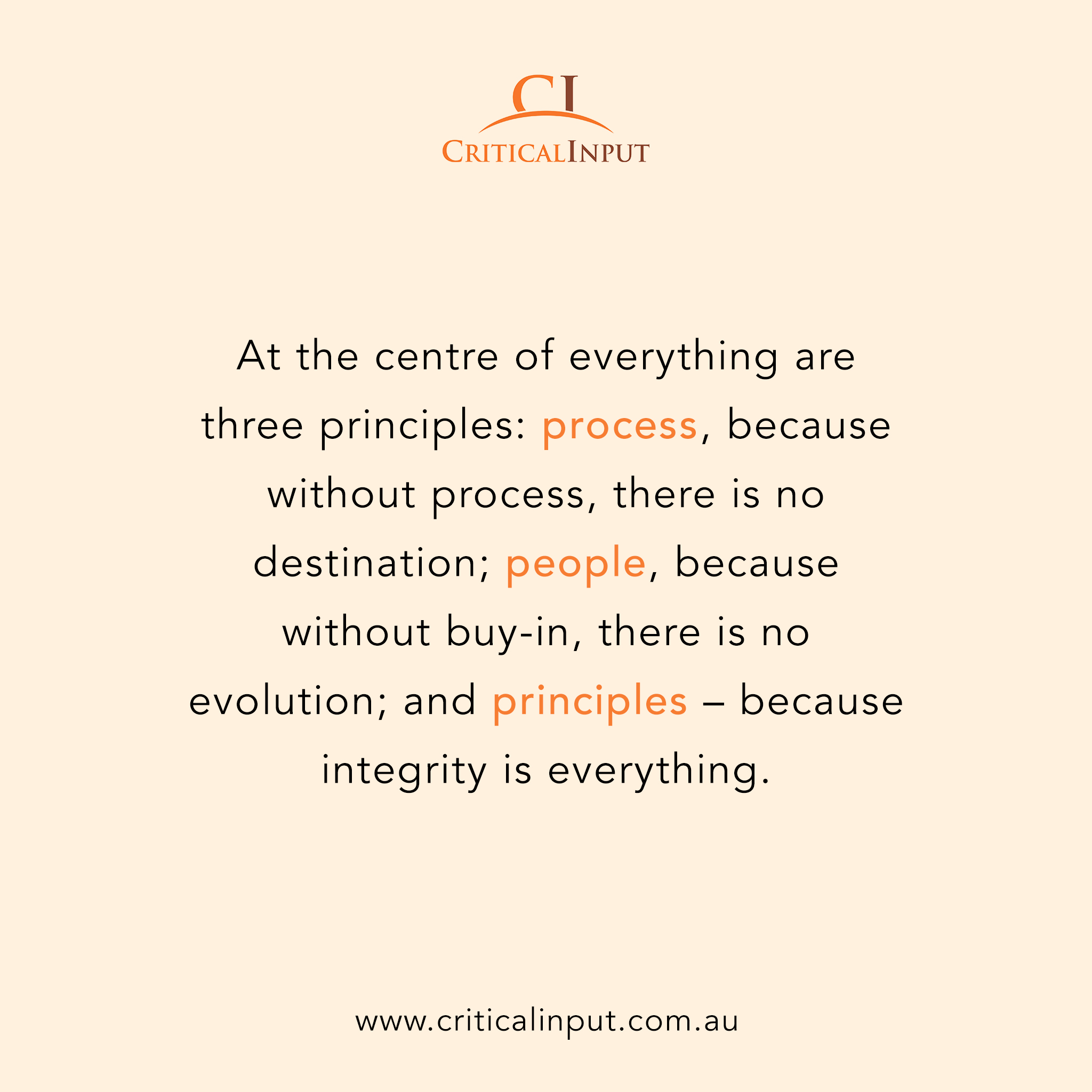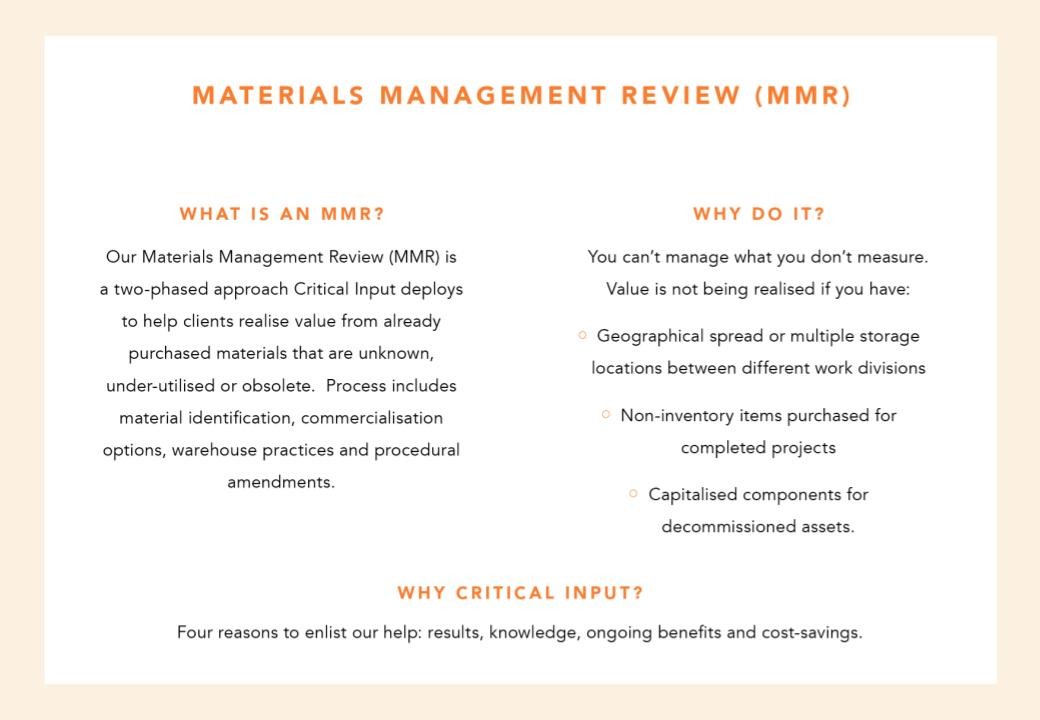A vent about my pet peeve – corporate waste

Pictured: Critical Input Managing Director Tim Griffiths
As the Managing Director of Critical Input, I’ve witnessed firsthand the challenge businesses face with corporate waste, ranging from unused goods in warehouses to resources squandered on inefficient processes.
The cost of this waste is not just financial; it impedes sustainable growth.
However, the remedy to this pervasive issue lies within a powerful duo: people and process.
In my experience, the core of corporate waste is often a lack of defined processes.
Without these, organisations struggle to manage resources efficiently, leading to significant waste.
But establishing processes alone is insufficient. They need to be embraced by the people within the organisation to affect real change.
At Critical Input, we prioritise not just the creation of systems but ensuring these systems are integral to our clients’ operational culture. This involves identifying key personnel – the movers, shakers, influencers, and change-makers – and bringing them along for the journey.
We dedicate time to engage and align with these critical figures, ensuring that any new or enhanced systems are not only implemented but sustained and woven into the fabric of the company’s daily operations.
Our approach is built on three fundamental principles: process, because without it, there is no destination; people, because without their buy-in, there is no evolution; and principles, because integrity is everything.

This straightforward yet effective methodology allows us to help our clients – from sectors like water, energy, mining, to heavy industry – not only reduce waste but achieve lasting success.
Understanding and harnessing the synergy between people and process can break the cycle of waste, paving the way for a sustainable corporate environment and, ultimately, a healthier planet.
But sometimes if waste has accumulated to the point of becoming unmanageable, organisations may need a ‘done for you’ service in the form of a Materials Management Review (MMR).
At Critical Input, we’ve encountered sites cluttered with unused boxes, pallets, and containers, sometimes holding substantial value. For instance, during a project with a mining company that hadn’t audited its underground stores in 20 years, we discovered $3 million worth of saleable goods that had been gathering dust.
Our team recently conducted a comprehensive MMR at a mining site. This wall-to-wall stocktake is designed to unearth value from materials that are unknown, under-utilised, or obsolete.
The process spans material identification, assessing commercialisation or recycling options, and revising warehouse practices and procedures. Not only does this help clear space and monetise what might otherwise be considered waste, but it significantly bolsters a company’s sustainability efforts.
The necessity for outsourcing such tasks stems from the sheer magnitude of the undertaking. Consider it akin to Marie Kondo’s method, but for industrial sites.
Workplaces, like homes, can accumulate excess, which often becomes overlooked as personnel shift roles or move on. Without a dedicated team to manage this process, excess materials can quickly become “nobody’s job.”
The repercussions of supply chain waste are multifaceted, impacting economics, aesthetics, the environment, and operational efficiency.
Our MMR process is a methodical, two-phased approach:
Phase One: Offers an initial review of your organisation’s management of inventory across various storage locations, providing actionable recommendations.
Phase Two: Is optional and involves a thorough review and implementation of recommended changes, ensuring that knowledge and control remain with your team.
![]()
Why undertake a Materials Management Review? The simple answer: You cannot effectively manage what you don’t measure. Between geographical spread and various work divisions, the potential for corporate wastage and missed opportunities is vast.
If your site could use a “Marie Kondo” makeover in 2024, consider how our MMR could streamline your operations and enhance your sustainability credentials.




